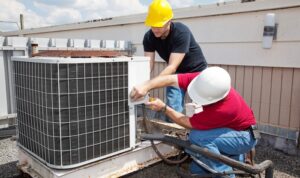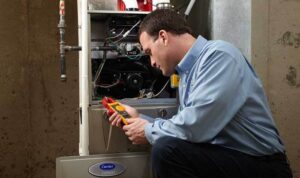With Carrier HVAC service at the forefront, this piece invites readers to delve into the world of professional maintenance and repair services tailored for Carrier systems. Offering insights and details, it promises a comprehensive look at the importance and benefits of expert care for your HVAC units.
Introduction to Carrier HVAC Service
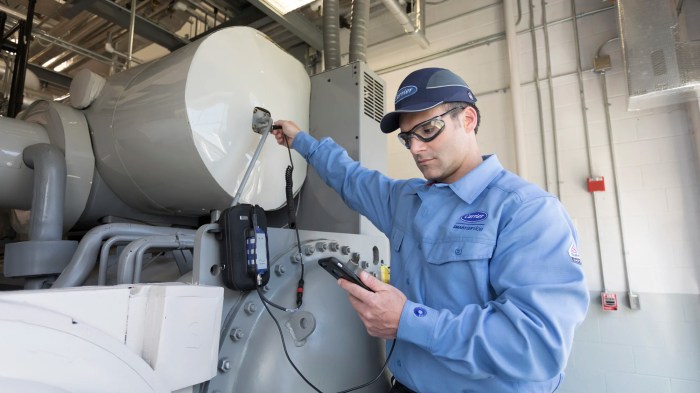
Carrier HVAC service refers to the maintenance, repair, and installation services provided by trained professionals specifically for Carrier heating, ventilation, and air conditioning systems. These services are essential to ensure the optimal performance, efficiency, and longevity of HVAC units in residential, commercial, and industrial settings.
Significance of Professional Carrier HVAC Service
Professional Carrier HVAC service is crucial to maintain the functionality and energy efficiency of HVAC systems. Trained technicians have the expertise and knowledge to diagnose issues accurately, perform repairs effectively, and conduct regular maintenance to prevent costly breakdowns. By relying on professionals, customers can ensure that their Carrier HVAC systems operate smoothly and provide optimal comfort.
Range of Services Offered by Carrier HVAC Technicians
- Installation: Carrier HVAC technicians are trained to install new HVAC systems efficiently and according to manufacturer specifications.
- Repair: Technicians can diagnose and repair various issues that may arise with Carrier HVAC units, ensuring that they operate at peak performance.
- Maintenance: Regular maintenance services, such as cleaning, inspections, and tune-ups, are offered to prevent potential problems and extend the lifespan of the HVAC system.
- Emergency Services: In case of sudden breakdowns or malfunctions, Carrier HVAC technicians are available to provide emergency repair services to restore comfort quickly.
Importance of Regular Maintenance
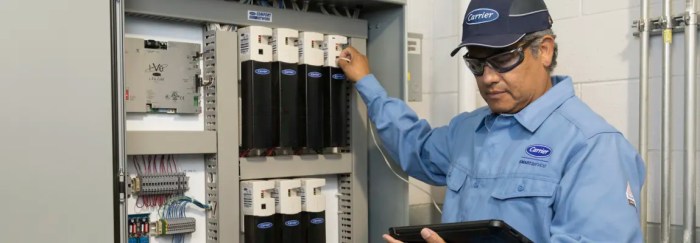
Regular maintenance is crucial for ensuring the optimal performance and longevity of Carrier HVAC systems. By scheduling routine maintenance checks, homeowners can benefit from improved efficiency, lower energy costs, and a reduced risk of unexpected breakdowns.
Benefits of Regular Maintenance
- Enhanced Efficiency: Regular maintenance helps keep Carrier HVAC systems running at peak efficiency, reducing energy consumption and lowering utility bills.
- Extended Lifespan: By addressing minor issues early on, regular maintenance can significantly extend the lifespan of Carrier HVAC units, saving homeowners from costly replacements.
- Improved Air Quality: Proper maintenance includes cleaning and replacing filters, which helps improve indoor air quality by reducing dust, allergens, and pollutants circulating in the air.
Potential Consequences of Neglecting Maintenance
- Reduced Efficiency: Neglecting maintenance can lead to a decrease in system efficiency, resulting in higher energy bills and overall operating costs.
- Increased Risk of Breakdowns: Without regular maintenance, Carrier HVAC systems are more prone to sudden breakdowns and failures, leaving homeowners without heating or cooling when they need it most.
- Shortened Lifespan: Lack of maintenance can cause unnecessary wear and tear on HVAC components, shortening the overall lifespan of the system and leading to premature replacements.
Common Issues Addressed by Carrier HVAC Service
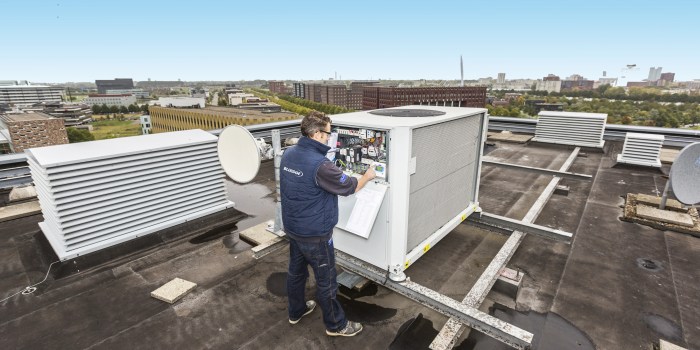
Carrier HVAC service technicians are trained to diagnose and address a wide range of common issues that can arise in heating, ventilation, and air conditioning systems. Regular maintenance and timely repairs can help prevent these problems from escalating and ensure the efficient operation of your HVAC system.
1. Airflow Restrictions
One common issue that Carrier HVAC service can address is airflow restrictions within the system. This can be caused by clogged air filters, blocked vents, or issues with the ductwork. HVAC technicians will inspect the system to identify the source of the restriction and recommend the necessary repairs or adjustments.
2. Refrigerant Leaks
Refrigerant leaks are another common problem that can affect the performance of your HVAC system. Carrier technicians have the tools and expertise to detect leaks, repair the damaged areas, and recharge the system with the correct amount of refrigerant to ensure optimal cooling efficiency.
3. Electrical Malfunctions
Electrical malfunctions, such as faulty wiring or damaged components, can lead to system failures and safety hazards. Carrier HVAC technicians are trained to troubleshoot electrical issues, replace damaged parts, and ensure that the system is operating safely and efficiently.
4. Thermostat Problems
A malfunctioning thermostat can cause temperature inconsistencies and comfort issues in your home. Carrier HVAC technicians can calibrate or replace the thermostat to accurately control the temperature and improve overall comfort levels.
Installation and Replacement Services
When it comes to installing a new Carrier HVAC system or replacing an existing unit, there are several important factors to consider. Proper installation and replacement services are crucial for ensuring the efficiency and longevity of your HVAC system.
Process of Installing a New Carrier HVAC System
Installing a new Carrier HVAC system involves a series of steps to ensure proper functionality and performance. This process typically includes:
- Assessment of the space and requirements
- Selection of the appropriate Carrier HVAC model
- Proper installation of the system components
- Testing and calibration of the system
Factors to Consider When Replacing an Existing Carrier HVAC Unit
When replacing an existing Carrier HVAC unit, it is essential to consider several factors to make the right decision. Some key factors to consider include:
- The age and condition of the existing unit
- The efficiency and performance of the new Carrier HVAC model
- The size and capacity of the HVAC system needed for the space
- Energy efficiency ratings and cost savings of the new unit
Comparison of Different Carrier HVAC Models for Installation and Replacement Options
There are various Carrier HVAC models available in the market, each with its unique features and benefits. Comparing different Carrier HVAC models can help you make an informed decision based on factors such as:
- SEER (Seasonal Energy Efficiency Ratio) ratings for energy efficiency
- BTU (British Thermal Units) capacity for heating and cooling requirements
- Special features like variable-speed technology or humidity control
- Warranty coverage and after-sales support services
End of Discussion
In conclusion, Carrier HVAC service emerges as a crucial aspect of maintaining comfort and efficiency in your home. By understanding the significance of regular maintenance, addressing common issues promptly, and exploring installation options, you can ensure your Carrier HVAC system operates optimally for years to come.
Commonly Asked Questions
How often should I schedule maintenance for my Carrier HVAC system?
You should ideally schedule maintenance for your Carrier HVAC system at least once a year to ensure optimal performance and efficiency.
What are some signs that indicate my Carrier HVAC system needs professional service?
Signs like strange noises, inconsistent cooling, or sudden spikes in energy bills can indicate issues that require professional Carrier HVAC service.
Can regular maintenance really extend the lifespan of my Carrier HVAC unit?
Absolutely. Regular maintenance helps identify potential problems early, preventing major breakdowns and extending the life of your Carrier HVAC unit.

